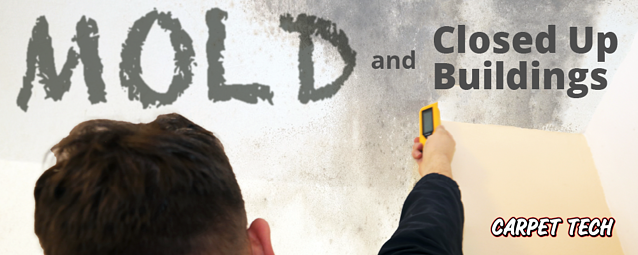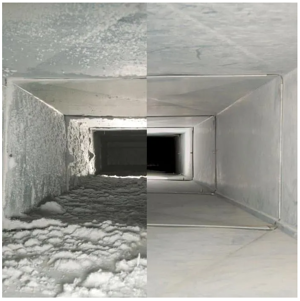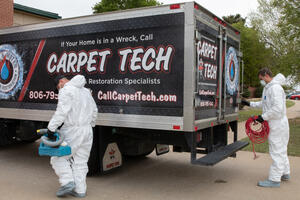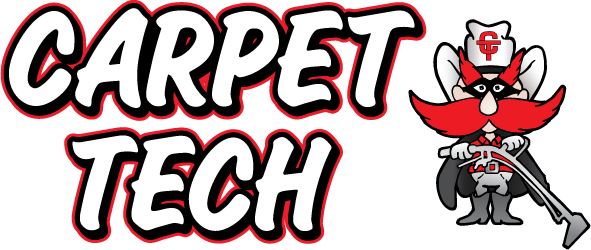
For weeks, buildings have been closed, shuttering from coronavirus. But before open for business signs reappear, owners are faced with cleaning and disinfecting and another possibility… mold. Employee safety depend on more than eliminating COVID-19, other viruses, bacteria and mold may be hiding behind that long locked door.
Mold can enter buildings through open doorways, windows, vents, and heating and air conditioning systems. Many types of molds exist and all molds have the potential to cause health effects. Carpet Tech understands how to safely and effectively meet mold remediation needs. Before you reopen, take a look at these mold basics and know how to detect, remove, and prevent these fungi from moving in to your home or office.
Mold Basics
Molds are part of the natural environment. Molds are fungi that can be found anywhere – inside or outside – throughout the year. About 1,000 species of mold can be found in the United States, with more than 100,000 known species worldwide. Molds can grow on virtually any substance, as long as moisture or water, oxygen, and an organic source are present.
Causes of Mold
- leaky foundations, walls, roofs, or windows
- leaking water pipes or wastewater lines
- poor window or wall construction and insulation
- not enough weather stripping around doors or windows
- high indoor humidity
- poor exhaust ventilation in kitchens or bathrooms (like kitchen hoods and bathroom fans)
- damp basements or crawl spaces
- flood or sewer back-up
Health Effects of Mold
 Molds can produce allergens that can trigger allergic reactions or even asthma attacks in people allergic to mold. Potential health concerns are an important reason to prevent mold growth and to remediate/clean up any existing indoor mold growth. Mold in air duct and vents are often an unseen enemy. Carpet Tech not only specializes in commercial mold removal but our certified air ducts technicians can investigate suspected mold in your establishment to seek out mold colonies that may be growing inside your duct works.
Molds can produce allergens that can trigger allergic reactions or even asthma attacks in people allergic to mold. Potential health concerns are an important reason to prevent mold growth and to remediate/clean up any existing indoor mold growth. Mold in air duct and vents are often an unseen enemy. Carpet Tech not only specializes in commercial mold removal but our certified air ducts technicians can investigate suspected mold in your establishment to seek out mold colonies that may be growing inside your duct works.
Mold Prevention
The best way to prevent mold is to control indoor moisture. Proper building construction and maintenance can help reduce mold risk. Other mold prevention tips include:
- Keep the roof, exterior walls, windows, and foundations in good repair and weatherproof.
- Make sure walls and ceilings have enough insulation to keep cold air out.
- Make sure there is good ventilation throughout the building
- Make sure heating vents aren’t blocked.
- Don’t have too many plants in the room.
- Clean the bathroom and kitchen exhaust systems regularly.
- Regularly wipe clean bathroom walls and ceilings that are often wet.
- Regularly de-scale, clean, and sanitize humidifiers.
Mold Removal Process
 TraCT Disinfectingined and certified mold remediation specialists like the ones at Carpet Tech understand how to seek out mold, contain it, and stop its growth. As a bio hazard cleanup company, we are trained in evaluating the presence of mold and other contaminants and can make recommendations for the reduction of such, should there be a problem.
TraCT Disinfectingined and certified mold remediation specialists like the ones at Carpet Tech understand how to seek out mold, contain it, and stop its growth. As a bio hazard cleanup company, we are trained in evaluating the presence of mold and other contaminants and can make recommendations for the reduction of such, should there be a problem.
Carpet Tech uses EPA approved chemicals and processes for commercial disinfecting that not only treat mold but other harmful bacteria and viruses well.
Carpet Tech’s remediation process is as follows:
- Investigate: First, our experts will perform a visual inspection, keeping you fully informed about the cost and extent of necessary service.
- Repair and containment: Before mold can be removed, the moisture feeding it must be eliminated. This will stop mold from coming back.
- Mold Remediation: Our experienced team will remove the mold from the problem area.
- Air Duct Cleaning: We’ll clean your air duct system, getting rid of invasive mold and the mold spores moving around your home.
- Restoration: Once we have defeated the mold, we’ll restore your home or business to its livable condition for your family.
Reopening the Building
When you return, or just before the building is reoccupied, consider an assessment by a licensed mold remediation company like Carpet Tech.
- Before you return, take a little time to go inside
- Utilize your sense of smell to detect any changes in the environment. Mold infestation usually has a musty odor
- Open the building to fresh air and turn the HVAC system back on
- Thoroughly clean and disinfect for not only, mold, but bacteria and viruses


